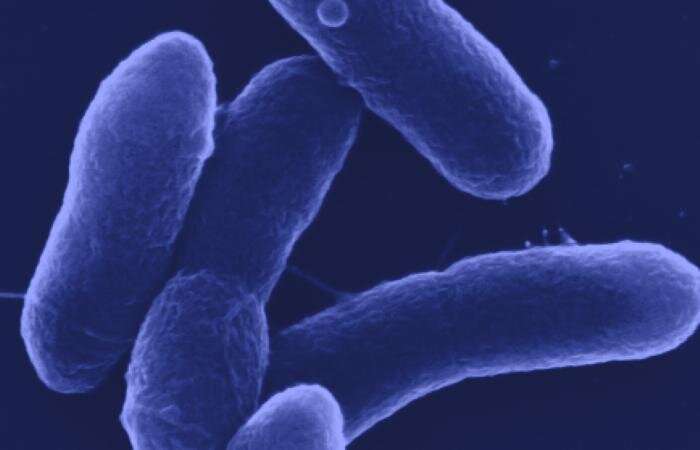Team creates microbe to turn waste into useful chemicals

A research team led by Oak Ridge National Laboratory bioengineered a microbe to efficiently turn waste into itaconic acid, an industrial chemical used in plastics and paints.
Producing itaconic acid currently involves fungi feeding on relatively pure sugars, which can be expensive. In ORNL's demonstration, the team used lignin, a waste product from biorefineries and paper mills, to grow the bacterium Pseudomonas putida for potentially cheaper itaconic production.
The trick was to separate the microbes' growth phase from itaconic production using dynamic controls. ORNL designed and deployed a biosensor that triggers the metabolic pathway for itaconic acid production only after the microbes consume all the nitrogen that fuels their growth.
"This technology could provide additional revenue for biorefineries by turning lignin into a high-value chemical," ORNL's Adam Guss said. "One strain achieved nearly 90% of theoretical yield during the production phase and could be further optimized. We can also apply these methods to a range of carbon waste streams."
More information: Joshua R. Elmore et al. Production of itaconic acid from alkali pretreated lignin by dynamic two stage bioconversion, Nature Communications (2021). DOI: 10.1038/s41467-021-22556-8
Journal information: Nature Communications
Provided by Oak Ridge National Laboratory




















